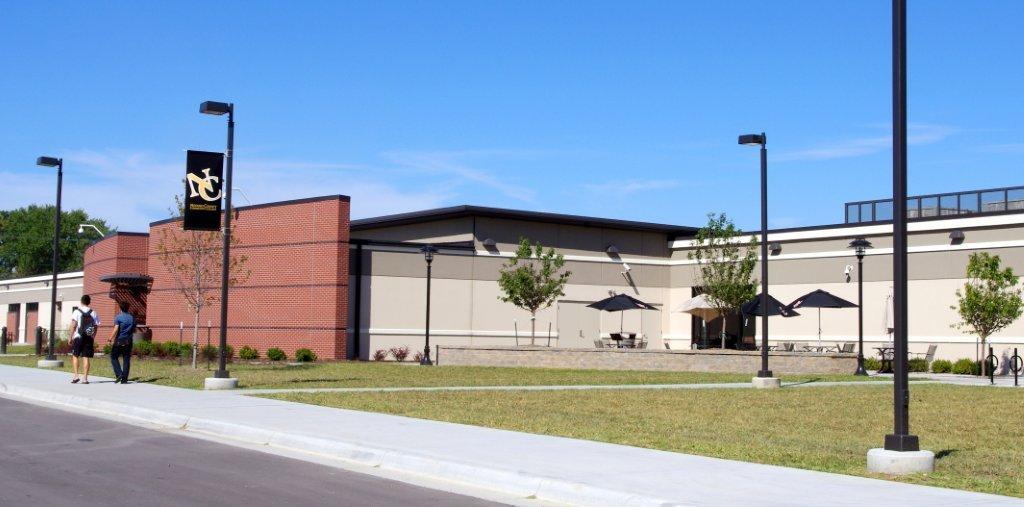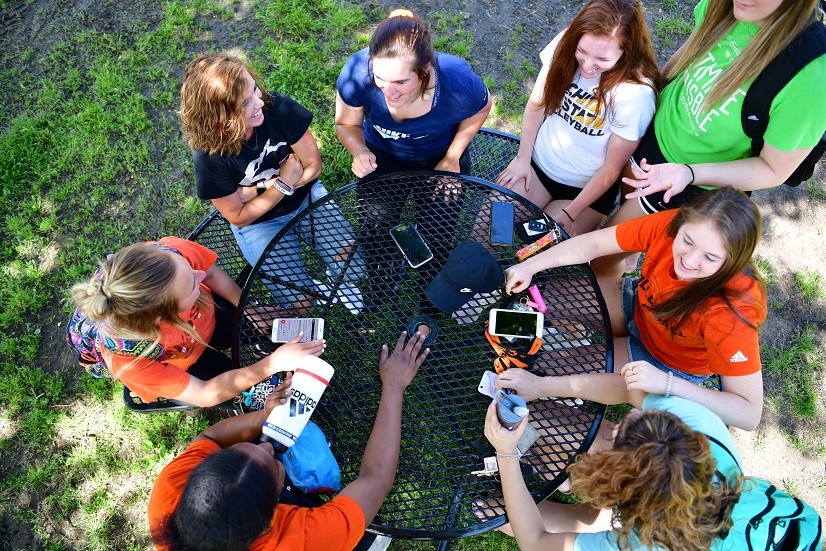
Office for Assessment and Institutional Effectiveness
NCCC is committed to continuous improvement. This is why we maintain a robust culture of assessment. Whether we are thinking about course learning, cocurricular activities, student services, or any other aspect of our college, we are constantly collecting and using data as part of our effort to make things better. For a detailed explanation of our assessment processes, please see the Institutional Assessment Plan.
NCCC’s assessment efforts are coordinated by the Office for Assessment and Institutional Effectiveness, located in Stoltz Hall on the Chanute campus. This office serves as a clearinghouse for course assessments, student surveys, and more. The Assessment Office is managed by the Dean for Assessment and Institutional Effectiveness:
Mr. Steve Dowell
Dean for Assessment and Institutional Effectiveness
assessment@neosho.edu
Office 620-432-0446

Assessment Data
An important part of good assessment practice is sharing relevant data with stakeholders. Selected information is provided below, and further resources are located on these related pages: Academic Program Review and General Education Assessment.
The Institutional Effectiveness Dashboard (IED)
The Institutional Effectiveness Dashboard is an annual project of NCCC’s Executive Committee. It captures data related to the college’s mission and purposes. The IED uses a metadata approach to evaluate the college’s effectiveness in achieving its four purposes. Over three hundred pieces of data are collected for the project, and each is evaluated and scored using established criteria. The resulting calculations help inform strategic planning.

Course Survey Results
NCCC students have an opportunity to share their feedback at the end of every course. Among other things, we ask them to rate the course and the instructor.
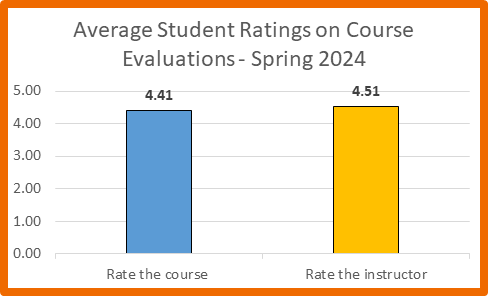
Community College Survey of Student Engagement (CCSSE)
In the spring of 2022, NCCC joined a cohort of over 400 institutions to administer the Community College Survey of Student Engagement. The CCSSE collects over 160 responses about the student experience, including topics like academics, student services, work-life pressures, overall perceptions about the college, and more. NCCC student responses were compiled and compared to the full cohort as well as to the other institutions in our size category. Results have been grouped into five major categories as shown below:

National Community College Benchmark Project (NCCBP)
NCCC participates in the National Community College Benchmark Project, which compiled data from more than 130 institutions in 2023-2024. This information was then compared and ranked, allowing participants to see how their own institution measures up to peer colleges. Below are some of NCCC's rankings from the NCCBP Report released in the spring of 2024:
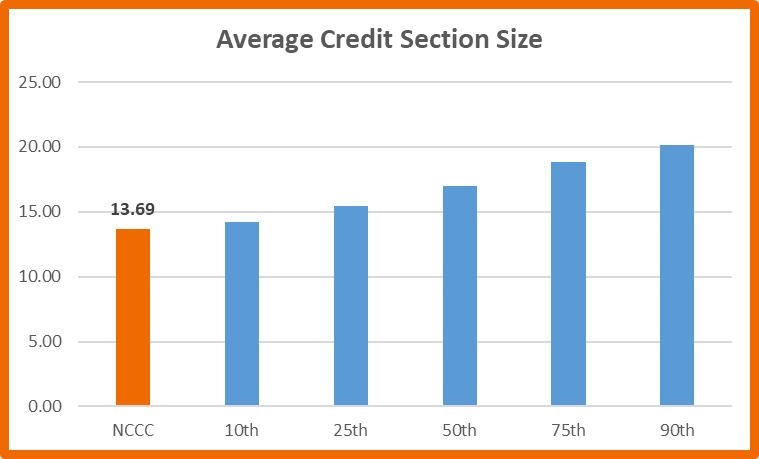
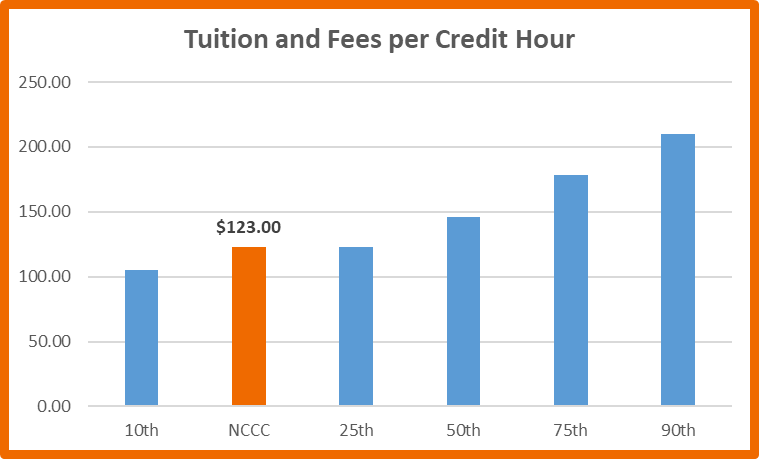

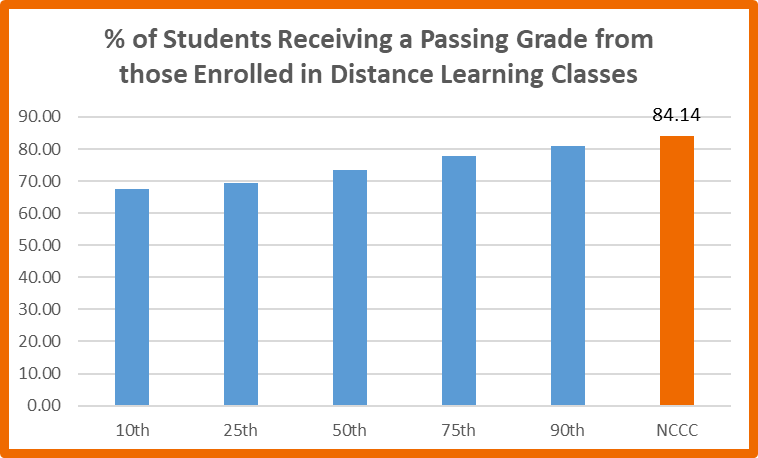
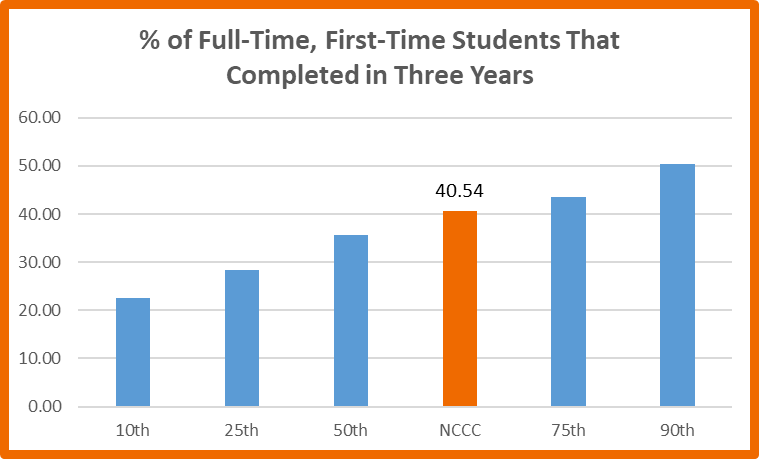

Student Satisfaction Survey
At least every other year, NCCC students respond to a satisfaction survey that has been developed by a leading company in higher education enrollment management, Ruffalo Noel Levitz. Students respond to the survey’s items in two ways. First, students rate the importance of the item. Then they rate their satisfaction with that item at NCCC. All ratings are based on a 7-point scale, with seven being “very important” or “very satisfied.” Gaps between the importance and satisfaction ratings can help identify areas that may need attention. Ruffalo Noel Levitz also provides comparison data to help interpret and contextualize the results.
The Scale Report below sums up the results of the 2023 Student Satisfaction survey at NCCC. This report clusters the survey’s forty items into eight major categories. The table shows the overall importance ratings, satisfaction ratings, and gaps. Data from a national peer group is provided for comparison.
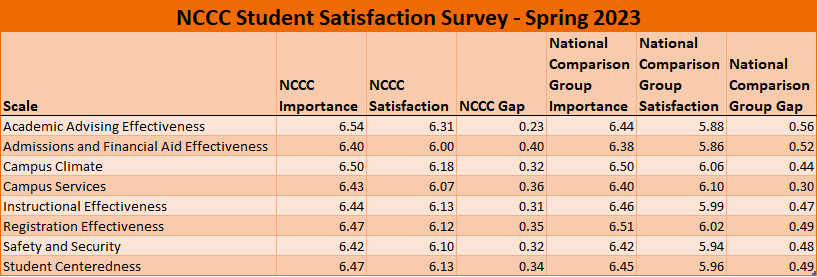
Cocurricular Learning
At NCCC, students learn both in and out of the classroom. Learning that takes place outside of classroom is described as cocurricular learning. It stems from a wide range of activities commonly associated with athletic teams, clubs, student organizations, student government, on-campus employment, etc. Students in these activities may complete trainings, develop projects, engage in community service, travel to conferences, listen to special speakers, and so forth. As they do, they are also developing important skills for the future.
NCCC actively measures cocurricular learning in order to gauge the effectiveness of its cocurricular programming. The table below shows recent scores for each of the six program outcomes.
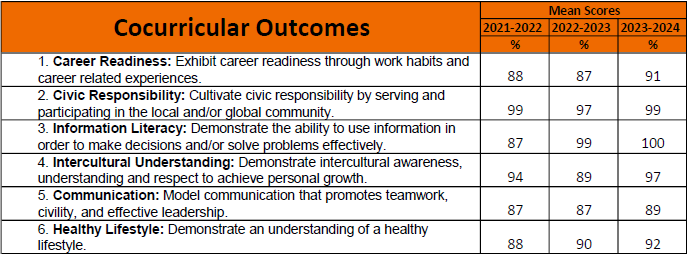
Student Success Report
The Student Success Report summarizes information about student retention and graduation. Please click Student Success Report to view the latest report.
